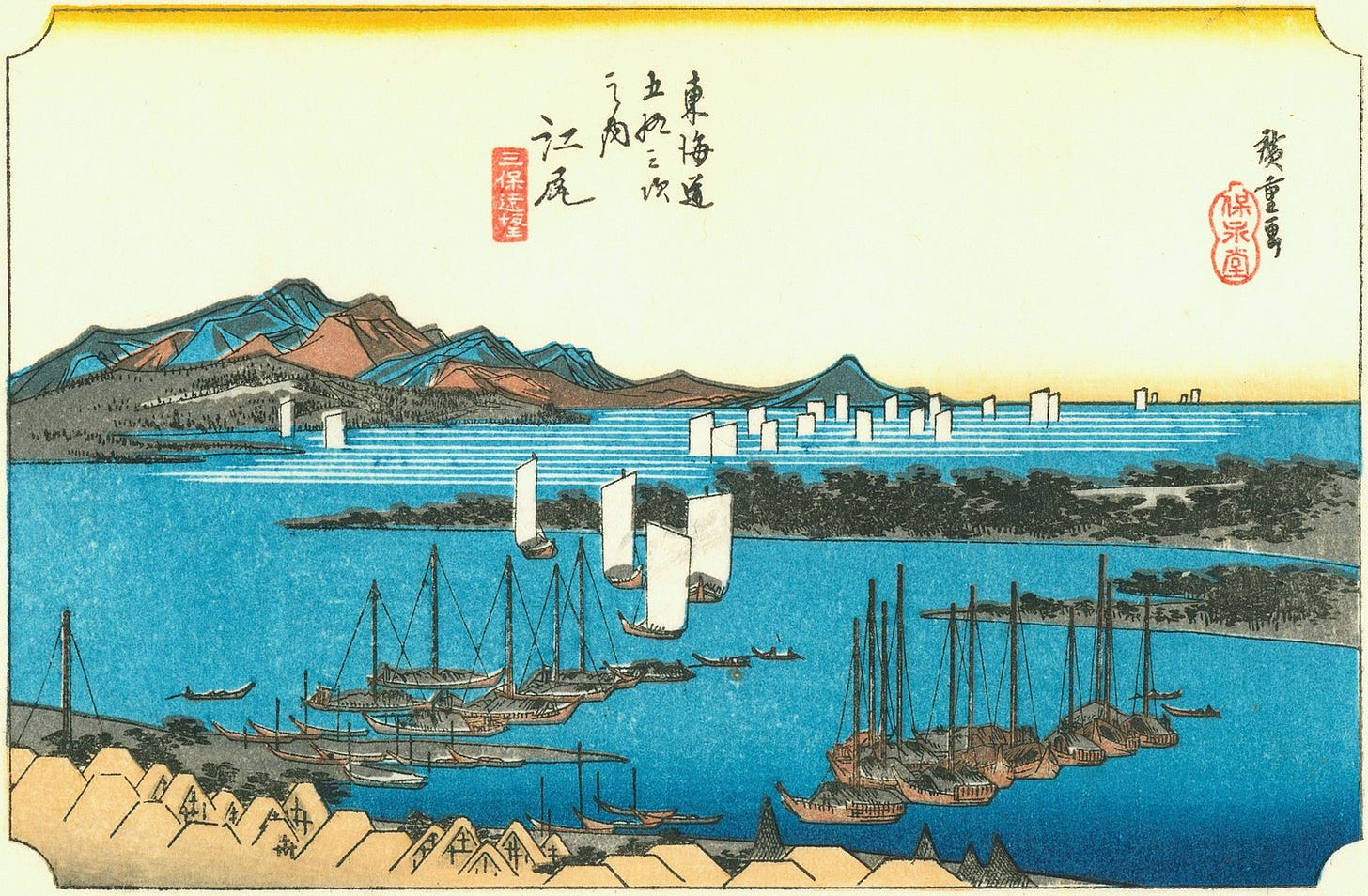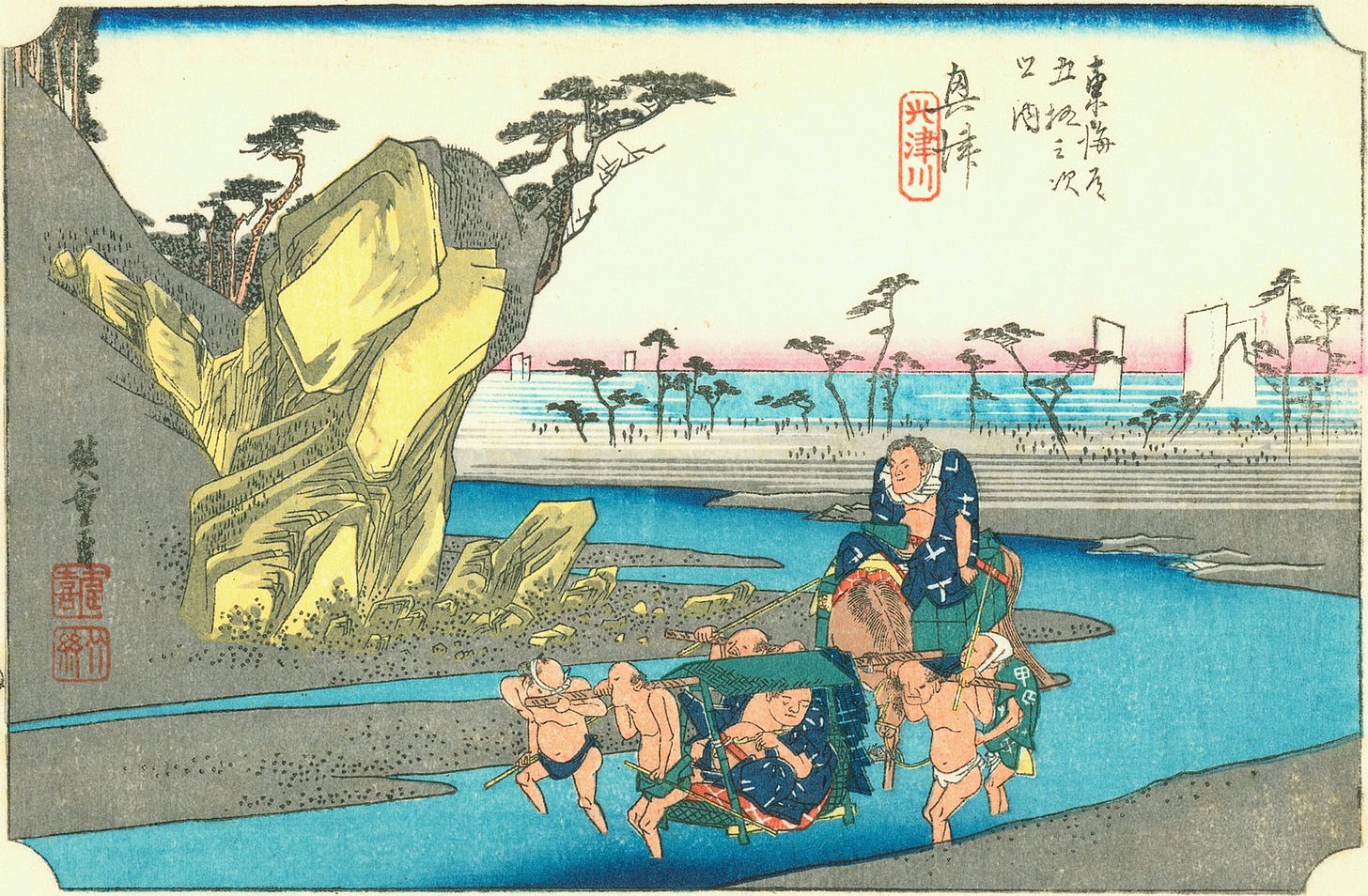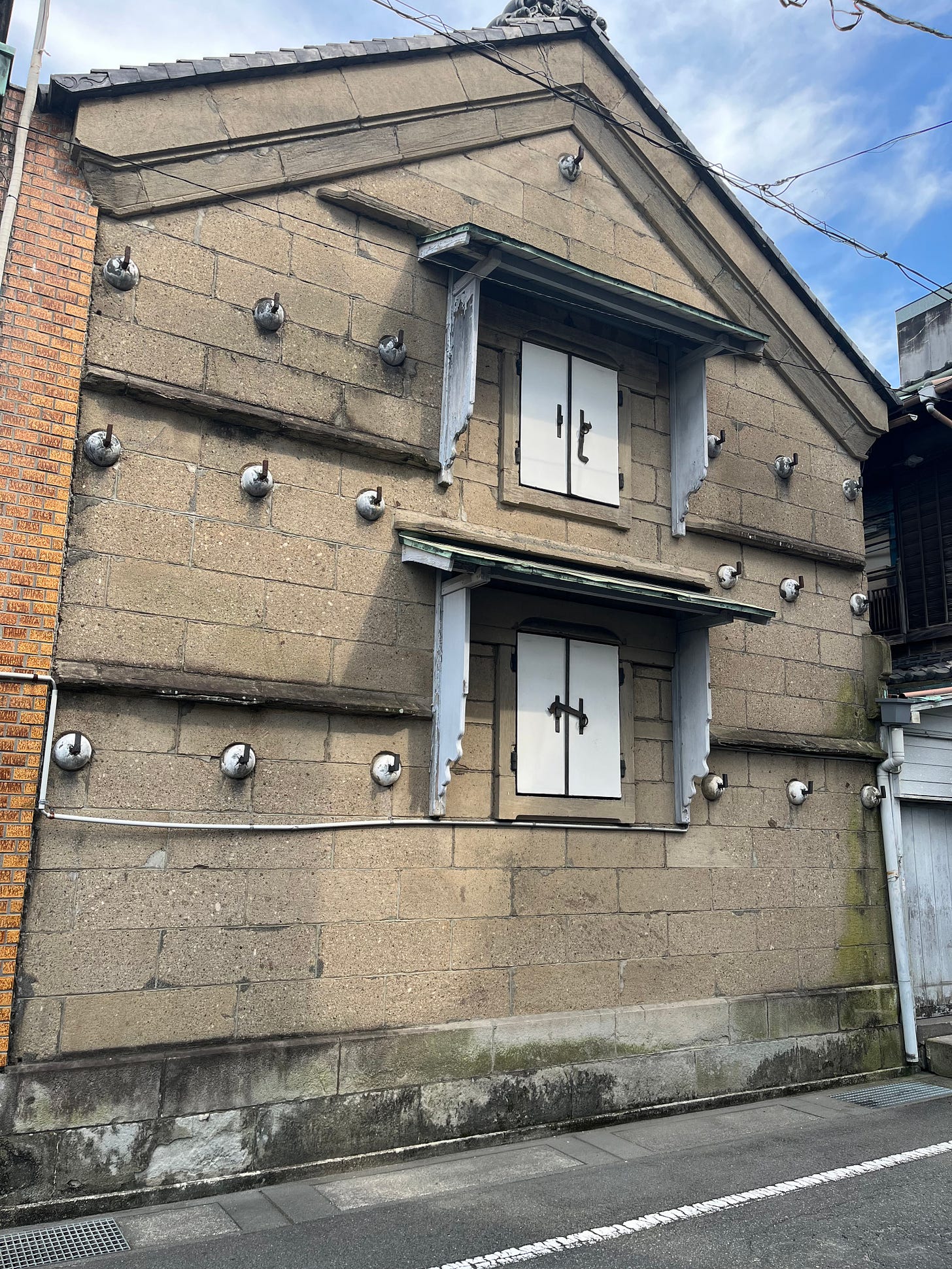I lay in bed the next morning until just before the check-out time. My feet were a little better, my crotch fully recovered. The soles of my feet no longer felt like they were walking on slightly soggy cornflakes, but now like two patches of sticky linoleum flooring as the blister-covering skin hardened up.
I had split my walk into long days and short days. Yesterday had been a short day - only 25 kilometres rather than the 40 for a long day. Today was supposed to be a long day, but with the late start and my slow pace, I realised I was never going to make it to my next hotel in Fuji City before dark. Somewhere along the way, I would need to take the train to Fuji City and return to the same point tomorrow.
Shizuoka stretched on for miles, the angular sign-festooned blocks of the city centre giving way to familiar suburbs with their Kumon schools and dentists. A school advertised a monozukuri contest - that’s how important this concept still is in Japan. Just beyond this was the sleek glass frontage of the Bandai Hobby factory.
Bandai is an entertainment company, making video games and toys, including the popular Gundam, Pac-Man and Ultraman. This factory in Naganuma, near Shizuoka makes the Gunpla toy Gundam models. Bandai has increasing sales, increasing profit and a more international focus. It still sells around three-quarters of its product inside Japan, but this is down from over eighty percent just a few years ago. It maybe with this more international focus in mind that it raised its entry level salary from around 230,000 yen a month to 290,000 yen a month and raised all salaries by around 50,000 yen a month in April 2022. Japanese salaries in the video game industry have fallen far behind those in the US over the last few years, and the hours are long.
A long, dark tunnel passed under railway freight sidings, and I emerged in the baking sunshine on the other side by a stone marker and a very convenient stone bench where I rested for elevenses. Then, back to the suburbs. Never again, I thought will I ever do a walk in Japan that passes mostly through suburbs like the Tokaido. Japanese suburbs have the same comforting feel that British ones do. In Britain, it’s the neatly trimmed gardens, alleyways lined with concrete and wooden fences with their circular cycling prohibited signs at each end, and wooden telephone poles that ooze dark resin in the heat of summer. In Japan, it’s the cinder-block walls, bristly pines, and naff-looking-not-changed-since-the-eighties hair salons. Both now have that feeling of home, but god are they dull to walk through.
A short stint on a main road, and again the Tokaido broke off to the side, straight as a shaft of sunlight, lined with pine trees. It felt so familiar now, so Tokaido. I didn’t even have to look at the guide book to know this was the Tokaido.
I stopped for lunch by a pretty lake, hemmed in by a pretty little temple, flower-filled gardens and an enormous Aeon shopping mall. The lake water seemed to steam like an onsen bath in the heat. I ate the sweet mayonnaise bread slowly.
The mountains had been closing in on each side, promising more interesting scenery. But now they opened out once again dashing the promise on the mansion blocks of suburbia. I crossed a bridge over the reasonably wide Tomoe River. I could sense the sea was near. On the other side, an upgraded street - pedestrianised, blocks of tesselating brick of varying hues for the paving, fancy lantern-like street lights in teal green; a local government attempt to entice people back to shopping streets and away from the Aeon malls. Then back onto Route One. I really wanted to stop somewhere to rest out of the heat of the day. But there was nowhere suitable. Finally, I reached the Ihara River, which had no proper park, but at least was lined with shade-giving trees, and I flopped down on the grassy bank under one of these. Beyond a couple of bridges, the sea was visible, and in the other direction, once again, the mountains were closing in.
I lay there for a long time. The area where I was stopped was called Ejiri, which roughly translates to “Inlet Buttocks”, and my buttocks could certainly have used an inlet to supply them with a cooling breeze. When it was late afternoon, I set off again. The mountains were so close now, I could feel them pushing me towards the sea. Which was good, because it meant the railway line would be pushed towards the sea too, and I would be able to easily find a train station when the time came.
Hiroshige’s woodblock print of Ejiri: Sailing boats cross the Suruga Bay towards the Izu Peninsula in the distance. In the foreground are the roofs of Shimizu Port. (Wikipedia Commons)
I found a large park, now that I didn’t need one. There was a statue of Inoue Kaoru, one of the Choshu Five samurai who went to Britain to study in the dying days of the Tokugawa Shogunate, when travelling outside of Japan was severely restricted. I wasn’t quite sure what his connection was with this part of Japan, as the Choshu region is much farther south in what is now Yamaguchi Prefecture.
Hiroshige’s print of Okitsu: Two Sekitori ranked sumo wrestlers are carried across the Okitsu River, one in a palanquin (pity the bearers) and one on a packhorse (pity the horse). (Wikipedia Commons)
Before I reached the Okitsu River, I decided to stop. Beyond the river, the Tokaido went up along the side of the mountains overlooking the sea, and there wasn’t a station for miles. So, I took the train from Okitsu station, and sped the rest of the way to Fuji City.
An old storehouse in Fuji City
It took me a while to figure out the bus across town to my hotel. Eventually, I made it to what I hoped was the correct bus stop and limped across to my hotel as the sun set. The hotel actually had a reception, which was a bonus and they were happy to let me stay another night. This was a hotel for working men, with a shared bath on each floor, a liberal supply of alcohol vending machines, and an even more liberal supply of porn channels on the TV.








I always learn something new from your walks. Usually several things. Today it's the concept of "monozukuri" and a type of hotel that seems like a no-nonsense break from the world.
The more you suffer, the better your writing is getting. Excellent stuff, Julian.